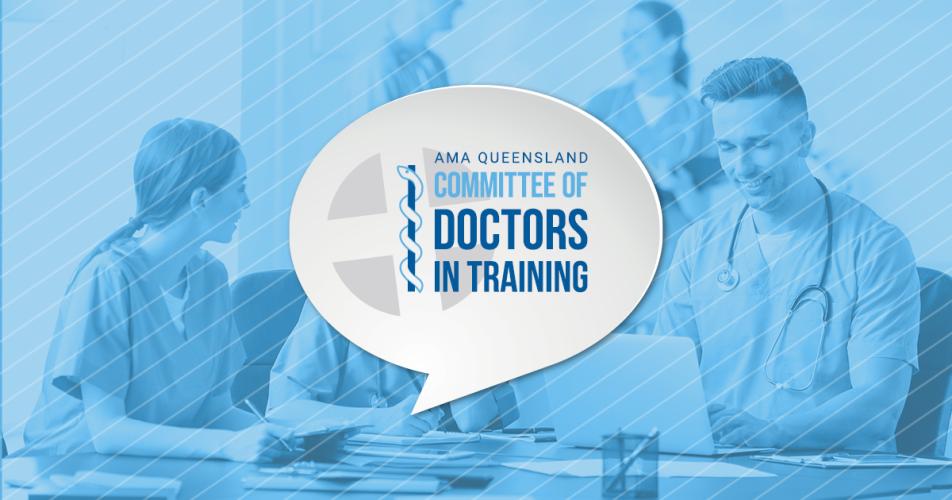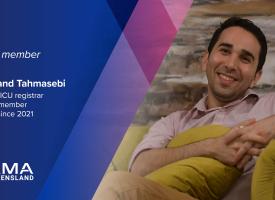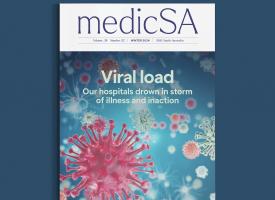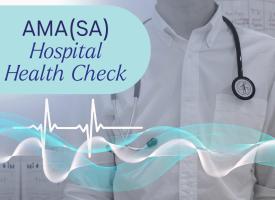CDT Chair update - November
Committee of Doctors in Training Chair Dr Elise Witter talks about the Resident Hospital Health Check results, the wellbeing webinar, ward call and the National Medical Training Survey.

The results of the Resident Hospital Health Check are here!
723 junior doctors completed the survey, which revealed several key concerns impacting doctors in training across the state.
Concerningly, one third of respondents reported they had felt unsafe at work, a five per cent increase compared to last year. A similar number (31 per cent) reported experiencing bullying or harassment in the workplace. Only 1 in 4 reported these incidents, with 74 per cent concerned reporting would have negative repercussions.
These results highlight the ongoing vulnerability of junior doctors at work, which significantly impair their capacity to deliver optimum patient care. It is evident that a deliberate systematic and structured approach to bullying and harassment is required, with mechanisms for anonymous reporting and increased responsiveness and support for junior doctors.
Similarly, there are numerous aspects of safety at work, from occupational violence prevention to safe access to carparks and buildings after hours and fatigue management that require ongoing input to enhance the wellbeing and safety of junior doctors.
While the number of people being fully paid overtime had increased to 89 per cent, an increased number reported being discouraged to claim by administrative staff or SMOs (22 per cent) and 39 per cent were concerned this would be negatively reflected in their performance. This indicates a negative culture around claiming overtime being perpetuated by hospital staff.
Despite these concerns, there was some encouraging progress. There were higher rates of opportunities in research and auditing and increased accommodation of clinical preferences. Many hospitals had increased scores on the report cards, with C- being the lowest score overall. However, the results reveal significant scope for improvement across hospital and health services, and the CDT look forward to continuing to advocate for ongoing positive changes for junior doctors.
The Federal CDT met in Canberra in September, and continue to progress on a host of issues relevant to DiTs. Following the success of the AMA Queensland CDT’s wellbeing webinar Treating Doctors with Mental Health Challenges earlier this year, we are looking to roll out further iterations nationally in conjunction with the federal wellbeing special interest group – watch this space for updates around this!
Wellbeing remains a top priority, and we have recently also provided representation within the Queensland Health Medical Wellbeing Reference Group to guide priorities and actions for 2024, and met with the senior director of the Health Capital division to raise the unique needs of DiTs for consideration in planning infrastructure and hospital design. We continue to meet with hospital executive across the state to advance the identified priorities for DiT wellbeing, including safety in infrastructure such as safe well lit access to carparks after hours, flexibility in training and enhanced access to leave.
We are also pleased to have recruited our inaugural GP representative to the committee, and look forward to advancing the unique needs of this cohort and promoting this specialty to our doctors in training. With a national shortage of GPs, we are eager to reduce barriers for individuals wanting to pursue GP training and hope to continue to expand our representation of trainees.
Ward call concerns also remain high on the agenda. The after hours working group continues to progress with a survey aiming to capture the afterhours environment, with a particular focus on ward call. With a dearth of national policy around this space, the team is eager to identify the current experience of DiTs and examine the use of novel paradigms including the use of tasking apps to minimise excess workload, staff fatigue, distress and inadequate supervision associated with ward call. We are looking forward to collaborating nationally to produce evidence-based policy in this space to guide future practice.
Finally, with 2023 drawing to a close, we are looking towards the future for our priorities continuing into 2024. The outcome of the Voice referendum has highlighted the ongoing work urgently required to improve equity for the Aboriginal and Torres Strait Islander population, including First Nations doctors-in-training, nearly 50 per cent of whom reported experience racism, bullying and discrimination in the workforce on the National Medical Training Survey. Similarly, institutionalised sexual harassment and bullying in medicine has also recently received national media attention and continues to adversely affect DiTs. The CDT will continue to explore these concerns and look forward to supporting DiTs in this space moving forward.



